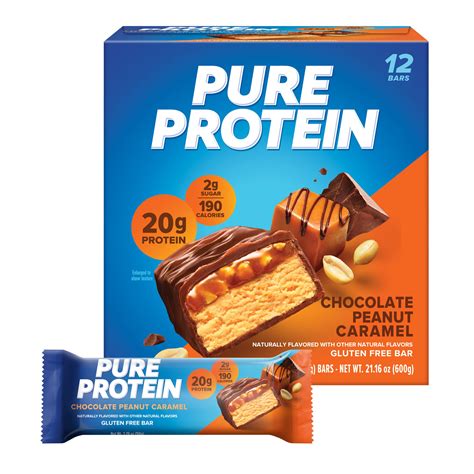How to Spot Fake Pure Protein Bars: A Comprehensive Guide
What are the telltale signs of a counterfeit Pure Protein bar?
As a popular brand, Pure Protein bars are sadly a frequent target for counterfeiters. These fake bars may look identical to the real deal, but they often contain subpar ingredients, lack the advertised nutritional value, and could even pose health risks. Fortunately, there are several ways to identify counterfeit Pure Protein bars and protect yourself from falling victim to this scam.
Here are some of the most common signs of a counterfeit Pure Protein bar:
- Unusual Packaging: Look for inconsistencies like misspellings, blurred graphics, or poorly printed labels. The packaging should feel sturdy and professional, not flimsy or flimsy.
- Different Bar Shape or Size: Authentic Pure Protein bars have consistent shapes and sizes for each flavor. If the bar you’re holding looks slightly different from what you’re used to, it could be a red flag.
- Off-Color or Texture: The color and texture of the bar should be consistent with what you expect from Pure Protein. If the bar is oddly discolored, unusually dry, or has a strange texture, it may be a counterfeit.
- Suspicious Smell: Pure Protein bars have a distinct, pleasant aroma. If the bar you’re holding has an unpleasant or unusual smell, it could be a sign of counterfeit ingredients.
- Oddly Low Price: If you find a Pure Protein bar being sold at an unusually low price, it’s a strong indicator that it might be counterfeit. Genuine bars are typically priced consistently across different retailers.
It’s also important to note that Pure Protein offers a wide variety of flavors and bar types. Each variety has its own unique packaging and bar characteristics. Be sure to compare the bar you’re buying to pictures of genuine bars on Pure Protein’s website or trusted retailers. If you’re unsure about the authenticity of a bar, it’s always best to err on the side of caution and avoid purchasing it.
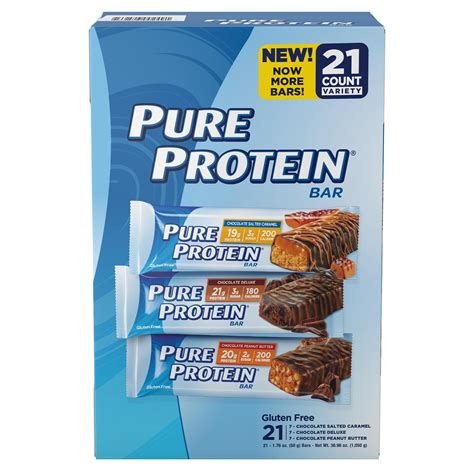
How can I tell if a Pure Protein bar is expired?
Just like any food product, Pure Protein bars have a shelf life. While the exact expiration date can vary depending on the specific flavor and manufacturing batch, you can generally find the expiration date on the packaging. The expiration date indicates the last day the product is expected to be at its best quality and safety.
Here’s a breakdown of what to look for when determining if a Pure Protein bar is expired:
- Check the Expiration Date: Look for the expiration date printed on the wrapper or packaging. The date will usually be displayed as «Best By» or «Use By.» Once this date has passed, the bar may not be at its peak quality.
- Inspect the Bar: Even if the bar is within its expiration date, inspect it for any signs of spoilage. Look for changes in color, texture, or smell. An expired bar may have a dry or brittle texture, an off-color appearance, or a rancid odor.
- Taste Test: If you’re unsure about the bar’s freshness, take a small bite. An expired bar may have a stale, off-flavor. If you notice any unpleasant taste or smell, it’s best to discard the bar.
Remember, while consuming an expired Pure Protein bar may not always pose an immediate health risk, it’s best to err on the side of caution. Eating expired food can potentially lead to digestive upset, and the nutritional value of the bar may be compromised. It’s always recommended to use products before their expiration date to ensure optimal quality and safety.
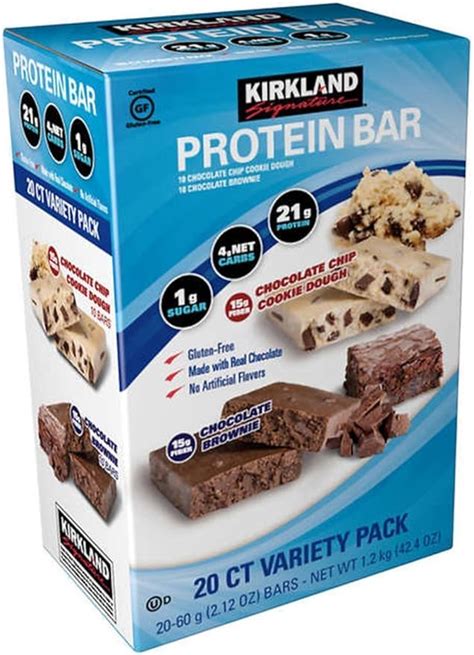
What are the ingredients in a genuine Pure Protein bar?
The ingredient list of a Pure Protein bar can vary slightly depending on the specific flavor. However, most genuine bars share a common core set of ingredients, often prioritizing protein and a mix of other nutrients to create a balanced snack.
Here are some typical ingredients you can expect to find in a genuine Pure Protein bar:
- Protein Blend: This is the key ingredient in Pure Protein bars, typically a mix of whey protein isolate, milk protein concentrate, and soy protein isolate. It provides the necessary protein boost to support muscle growth and repair.
- Carbohydrates: Most Pure Protein bars contain a moderate amount of carbohydrates, often sourced from sugar alcohols like erythritol, maltitol, and isomalto-oligosaccharide. These ingredients contribute to the bar’s sweetness and texture.
- Fat: Genuine Pure Protein bars often include healthy fats, such as cocoa butter, sunflower oil, or peanut butter, to enhance flavor and provide a source of energy.
- Fiber: Some Pure Protein bars contain fiber, typically from sources like inulin or chicory root, to promote digestive health and provide satiety.
- Other Ingredients: Depending on the flavor, additional ingredients may include cocoa powder, nuts, seeds, or dried fruit, enhancing the taste and nutritional value.
When analyzing the ingredient list of a Pure Protein bar, pay attention to the order of the ingredients. The ingredient listed first is present in the highest amount, while ingredients listed last are present in the smallest amount. A genuine Pure Protein bar will prioritize protein as a primary ingredient.
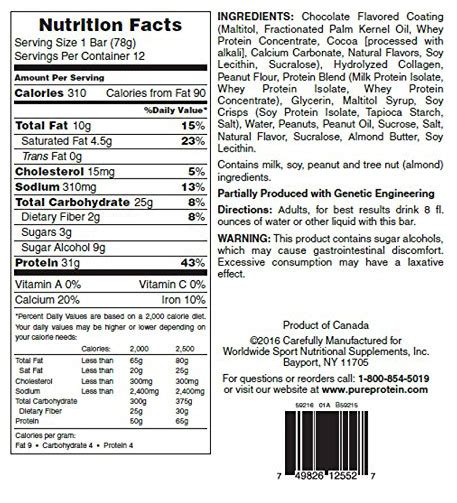
Where is the best place to buy genuine Pure Protein bars?
The best place to buy genuine Pure Protein bars is from reputable retailers, such as:
- Official Pure Protein Website: Purchasing directly from the official Pure Protein website eliminates the risk of encountering counterfeit products.
- Major Retailers: Large retail chains like Walmart, Target, Costco, and Amazon are typically reliable sources for genuine Pure Protein bars.
- Nutrition Stores: Specialty nutrition stores often carry a wide selection of Pure Protein bars, and they are usually knowledgeable about the product and its authenticity.
- Grocery Stores: Most reputable grocery stores carry a variety of protein bars, including Pure Protein. It’s always a good idea to check for expiration dates and packaging consistency.
While convenience stores and smaller shops might carry Pure Protein bars, it’s important to exercise caution when buying from these sources. Always check the packaging for signs of tampering or inconsistencies. If you have any doubts about the authenticity of the product, it’s best to purchase from a trusted retailer.
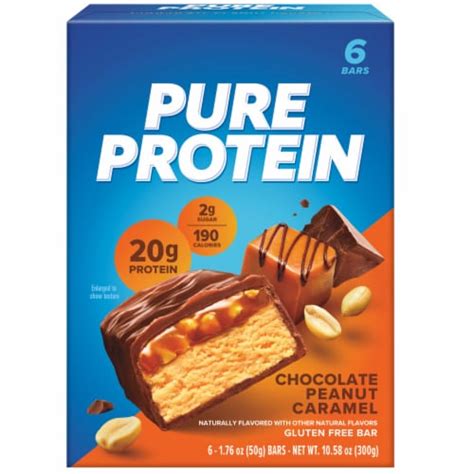
Can I report counterfeit Pure Protein bars?
Yes, you can report counterfeit Pure Protein bars. If you suspect you’ve encountered a counterfeit product, it’s important to report it to the appropriate authorities to help prevent further distribution.
Here are some ways you can report counterfeit Pure Protein bars:
- Contact Pure Protein: The company has a dedicated customer service line and email address for reporting counterfeit products. They will investigate the matter and take appropriate action.
- Report to the Retailer: If you purchased the counterfeit product from a retailer, inform them about the issue. Retailers are usually proactive in removing counterfeit items from their inventory.
- Contact Your Local Authorities: You can also report the counterfeit products to your local law enforcement agency. They may investigate the matter and take legal action against the counterfeiters.
By reporting counterfeit products, you contribute to protecting consumers and ensuring that the market remains free from harmful and fraudulent products. It’s important to be vigilant and report any suspicious activity.
Are counterfeit Pure Protein bars dangerous?
Counterfeit Pure Protein bars can be dangerous for several reasons:
- Unverified Ingredients: Counterfeit bars often contain undisclosed ingredients, which could include allergens, contaminants, or even harmful chemicals. This can lead to allergic reactions, digestive issues, or other health problems.
- Lack of Nutritional Value: Counterfeit bars may not contain the advertised amount of protein, vitamins, and minerals. This can undermine the purpose of using protein bars as a nutritional supplement.
- Potential Health Risks: Counterfeit bars might contain unapproved or unsafe ingredients, posing a potential risk to your health. These ingredients could cause gastrointestinal distress, headaches, or even more severe health consequences.
It’s crucial to understand that counterfeit products are not subject to the same safety and quality standards as genuine products. Always purchase Pure Protein bars from trusted sources and be aware of the potential risks associated with counterfeit items.
How can I avoid buying counterfeit Pure Protein bars?
To avoid purchasing counterfeit Pure Protein bars, it’s essential to be mindful and proactive when making your purchase. Here are some valuable tips to keep in mind:
- Buy from Reputable Sources: Purchase Pure Protein bars from the official website, major retailers, or specialty nutrition stores.
- Check the Packaging: Inspect the packaging for any signs of misspellings, blurry graphics, or poorly printed labels. The packaging should be sturdy and professional.
- Compare Prices: Be cautious of unusually low prices. Genuine Pure Protein bars are typically priced consistently across different retailers.
- Read Reviews: Check online reviews from other consumers to see if they’ve experienced any problems with counterfeit products.
- Trust Your Instincts: If something feels off about the product or the source, it’s best to avoid purchasing it. It’s always better to be safe than sorry.
By being cautious and informed, you can significantly reduce the risk of buying counterfeit Pure Protein bars and protect yourself from potential health risks and disappointment.
What should I do if I suspect I’ve bought a counterfeit Pure Protein bar?
If you suspect you’ve purchased a counterfeit Pure Protein bar, it’s important to take action to minimize any potential harm and prevent future occurrences.
Here’s a step-by-step guide on what to do:
- Inspect the Bar: Carefully examine the bar for any signs of inconsistencies, such as unusual packaging, off-color, or a strange texture.
- Contact the Retailer: Inform the retailer where you purchased the bar about your suspicions. They may be able to provide you with additional information or a refund.
- Contact Pure Protein: Reach out to Pure Protein customer service and report the potential counterfeit. They may request additional information or ask you to return the bar.
- Don’t Consume the Bar: It’s best to avoid consuming the bar if you suspect it’s counterfeit. The ingredients may be unknown or unsafe.
- Report to Authorities: If you feel the counterfeit product is a significant problem, you can report it to your local law enforcement agency or consumer protection organization.
By taking these steps, you can help protect yourself and others from counterfeit products and ensure the market remains free from fraudulent goods. Remember, it’s always best to err on the side of caution when dealing with potential counterfeit items.
How can I identify counterfeit Pure Protein bars?
Identifying counterfeit Pure Protein bars can be challenging, as counterfeiters often go to great lengths to mimic the genuine products. However, there are several telltale signs you can look for to increase your chances of spotting a fake:
- Packaging Discrepancies: Look for inconsistencies like misspellings, blurred graphics, or poorly printed labels. The packaging should feel sturdy and professional.
- Different Bar Shape or Size: Authentic Pure Protein bars have consistent shapes and sizes for each flavor. If the bar you’re holding looks slightly different from what you’re used to, it could be a red flag.
- Off-Color or Texture: The color and texture of the bar should be consistent with what you expect from Pure Protein. If the bar is oddly discolored, unusually dry, or has a strange texture, it may be a counterfeit.
- Suspicious Smell: Pure Protein bars have a distinct, pleasant aroma. If the bar you’re holding has an unpleasant or unusual smell, it could be a sign of counterfeit ingredients.
- Oddly Low Price: If you find a Pure Protein bar being sold at an unusually low price, it’s a strong indicator that it might be counterfeit. Genuine bars are typically priced consistently across different retailers.
If you’re unsure about the authenticity of a bar, it’s always best to err on the side of caution and avoid purchasing it.
Table summarizing information
| Characteristic | Genuine Pure Protein Bar | Counterfeit Pure Protein Bar |
|---|---|---|
| Packaging | Consistent with official branding, high-quality printing, sturdy materials | May have misspellings, blurred graphics, low-quality printing, flimsy materials |
| Bar Shape and Size | Consistent shape and size across all flavors | May have variations in shape or size compared to genuine bars |
| Color and Texture | Consistent color and texture across all flavors, smooth and uniform | May have unusual discoloration, dry texture, or uneven consistency |
| Smell | Distinct and pleasant aroma, often sweet or chocolatey | Unpleasant or unusual smell, possibly rancid or chemical-like |
| Price | Consistent pricing across reputable retailers, usually priced competitively | Significantly lower price than genuine bars, often suspiciously cheap |
| Ingredients | Prioritizes protein as the primary ingredient, includes known and safe ingredients | May contain undisclosed or potentially harmful ingredients, may lack sufficient protein |
| Expiration Date | Clearly displayed on packaging, typically «Best By» or «Use By» | May have missing or incorrect expiration dates, or the date may be tampered with |
FAQ
What are some common Pure Protein bar flavors?
Pure Protein offers a wide variety of flavors, catering to different preferences. Some popular flavors include Chocolate Peanut Butter, Cookies & Cream, Salted Caramel, and Birthday Cake.
Are Pure Protein bars vegan?
Most Pure Protein bars are not vegan, as they contain dairy products like whey protein isolate and milk protein concentrate. However, Pure Protein does offer a few vegan-friendly options, such as the «Plant-Based» bars, which are made with pea protein and other plant-based ingredients.
Are Pure Protein bars healthy?
Pure Protein bars can be a healthy and convenient snack option, especially for those looking to boost their protein intake. They offer a balance of protein, carbohydrates, and fat. However, it’s essential to choose flavors with moderate sugar content and avoid consuming too many protein bars per day.
How many calories are in a Pure Protein bar?
The calorie content of a Pure Protein bar can vary depending on the flavor and size. Typically, a bar contains between 180-240 calories. Check the nutritional information on the packaging for specific calorie details.
What is the best way to store Pure Protein bars?
For optimal freshness and quality, it’s recommended to store Pure Protein bars in a cool, dry place. Avoid exposing them to extreme temperatures or direct sunlight. Storing them in a sealed container or bag can also help to maintain their freshness.
Can Pure Protein bars help me lose weight?
While Pure Protein bars can be a convenient snack for weight management, they are not a magical weight loss solution. To lose weight, you need to consume fewer calories than you burn. Incorporate protein bars as a part of a balanced diet and regular exercise routine for better results.
Can Pure Protein bars be used for bodybuilding?
Yes, Pure Protein bars can be a useful supplement for bodybuilding, as they provide a convenient source of protein for muscle growth and repair. However, it’s essential to consult with a fitness professional or registered dietitian to determine the appropriate protein intake for your individual goals.
